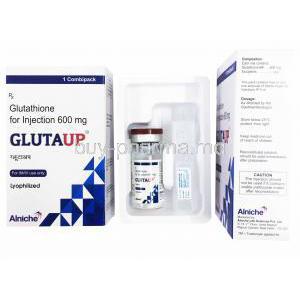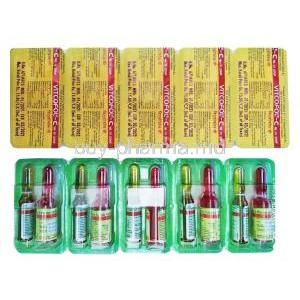Becozinc-G
- I. Introduction to Becozinc-G
- II. Composition of Becozinc-G
- III. Uses of Becozinc-G
- IV. Off-Label Uses of Becozinc-G
- V. How Becozinc-G Works
- VI. Dosage and Administration
- VII. Side Effects of Becozinc-G
- VIII. Common Side Effects
- IX. Serious Side Effects and Adverse Reactions
- X. Interactions with Other Medications
- XI. Warnings and Contraindications
- XII. Careful Administration
- XIII. Important Precautions
- XIV. Administration to Specific Populations
- XV. Overdosage of Becozinc-G
- XVI. Storage and Handling Precautions
I. Introduction to Becozinc-G
Becozinc G is a formulated blend that combines the nutritional benefits of Zinc with the therapeutic advantages of the Vitamin B complex. This unique mixture aims to strengthen the body's natural defense mechanisms and facilitate essential biochemical processes for maintaining optimal health. Zinc plays a role in supporting a strong immune system, DNA synthesis, and cellular division. On the other hand, the Vitamin B complex, consisting of eight vital vitamins, is responsible for energy production, neurological function, and red blood cell formation. When combined, they create a defense against nutritional deficiencies.
II. Composition of Becozinc-G
Bezocinc G contains a combination of ingredients, including Zinc sulfate monohydrate and a range of B vitamins like Thiamine (B1), Riboflavin (B2), Niacin (B3), Pantothenic acid (B5), Pyridoxine (B6), Biotin (B7) Folic acid (B9) and Cobalamin (B12). Each component is carefully measured to ensure synergy.
These ingredients play roles in our health.
- Zinc is essential for function wound healing and taste perception.
- The B vitamins are crucial for metabolic processes and energy production, as well as maintaining the health of our skin and brain.
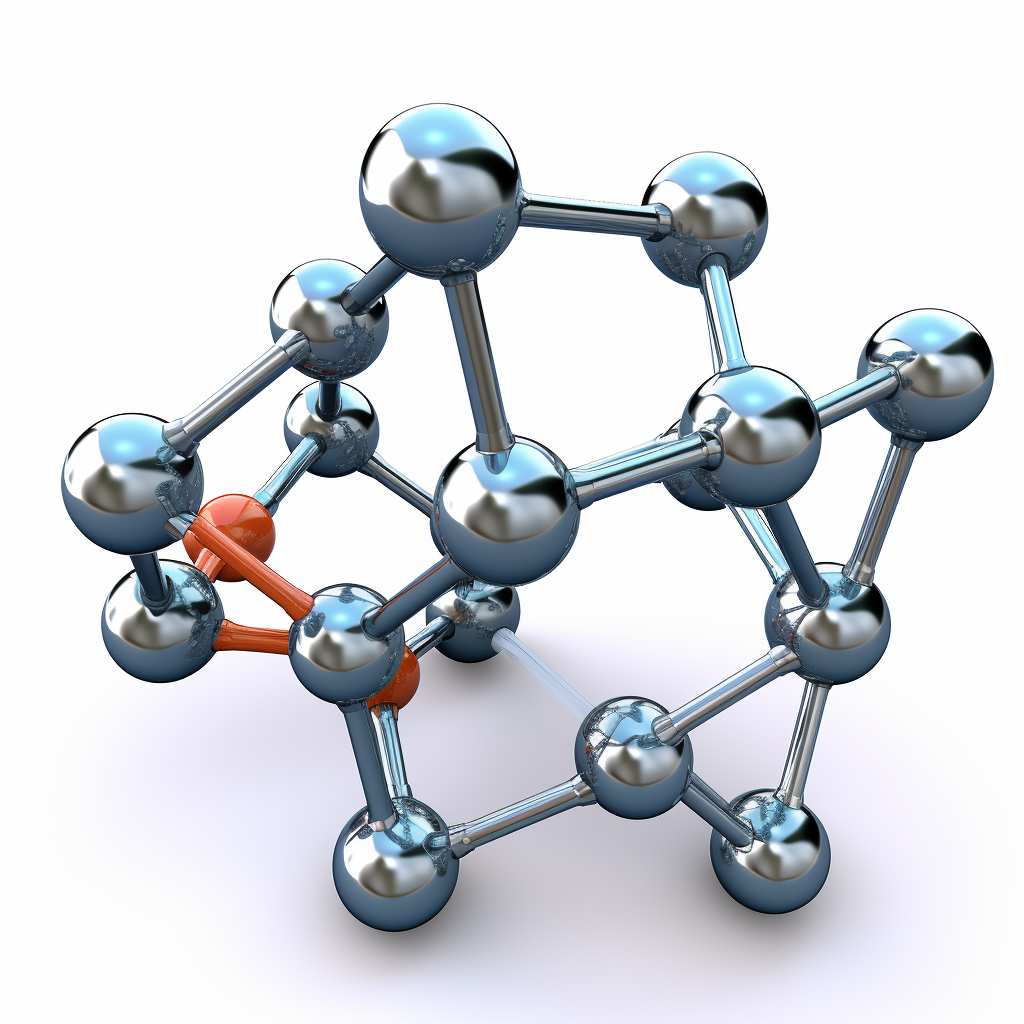
III. Uses of Becozinc-G
- Multivitamins & Multiminerals (A-Z prenatal preparation) are used to improve the nutritional status of women throughout pregnancy and in the postnatal period for both lactating and non-lactating mothers.
- It is also used for improving the nutritional status of women prior to conception3.
IV. Off-Label Uses of Becozinc-G
There might be more to Becozinc G than its nutritional benefits. Some studies suggest that it could also have effects on mood and potentially help reduce symptoms of depression. Researchers are currently investigating its uses in managing conditions like acne, age-related macular degeneration, and hair loss, although these uses have not been officially approved yet.
V. How Becozinc-G Works
Mechanism of Action: Zinc and Vitamin B Complex Zinc plays a role as a helper molecule for multiple enzymes, enabling various essential functions in our body. On the other hand, the B vitamins serve as vital coenzymes in metabolic pathways, specifically those related to energy production. Synergistic Effects on the Body When combined Zinc and B vitamins, in Becozinc G work together to enhance both neurological functions. This combination provides a benefit that goes beyond what each individual component can achieve alone.
VI. Dosage and Administration
Dosage Recommendations: The recommended dosage for Becozinc G may vary based on factors such as age, nutritional status, and medical conditions. It is important to follow the prescribed guidelines to maximize benefits and minimize any risks.
Methods of Administration and Timing; Becozinc G is typically taken orally with or without food. You can adjust the timing to fit your health routines or dietary requirements.
Adjustments for Specific Populations: In populations like pregnant women, the elderly, or individuals with renal impairment, dosage adjustments may be necessary due to their unique needs.
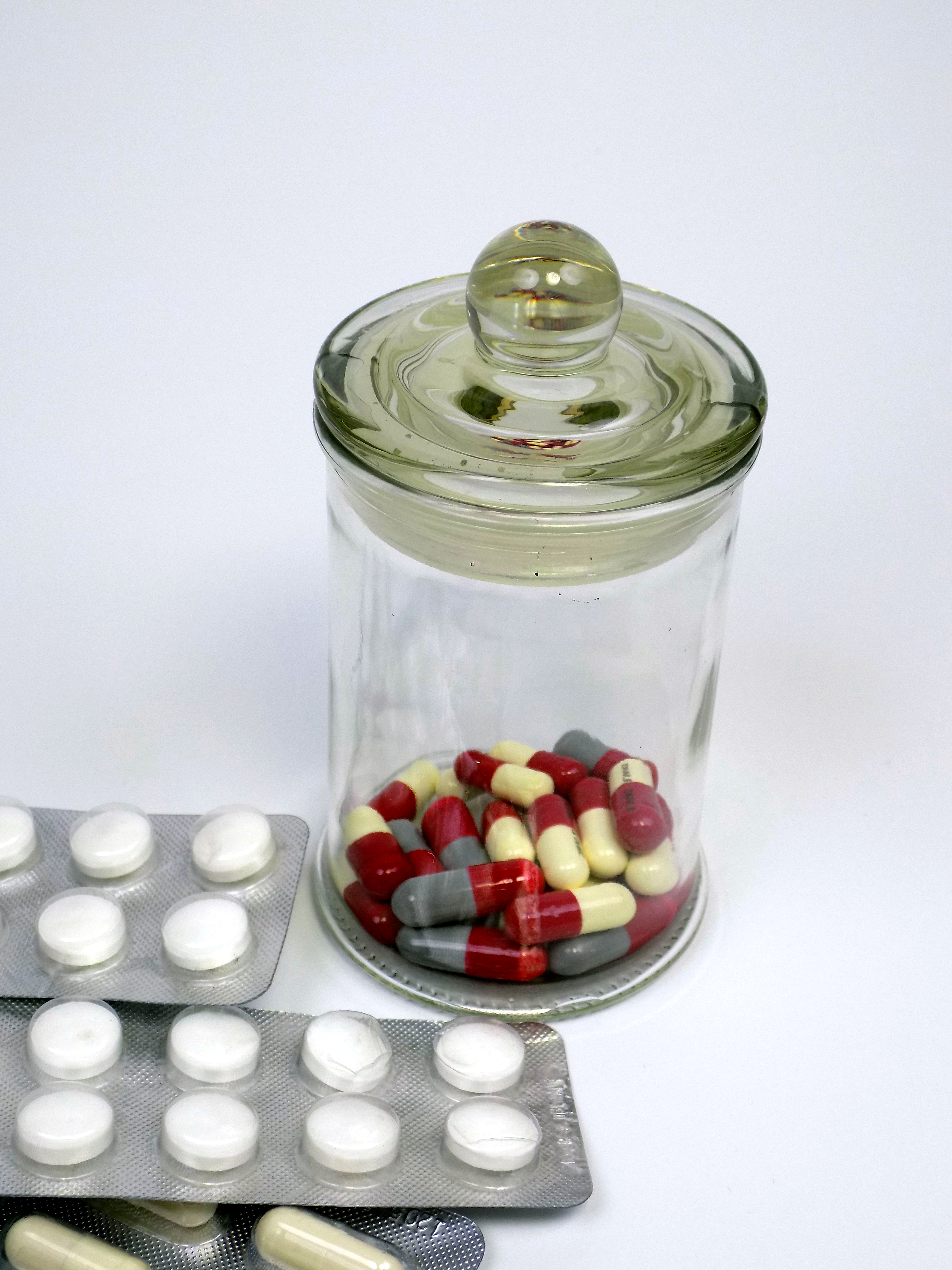
VII. Side Effects of Becozinc-G
A brief summary of side effects: Although usually well tolerated, a few people might encounter gastrointestinal troubles, feelings of nausea, or even allergic responses. Dealing with adverse reactions: The majority of side effects are mild and temporary in nature. To alleviate any discomfort in the stomach, it is advisable to drink water and consume the supplement along with a meal.
VIII. Common Side Effects
- Gastrointestinal problems.
- Feeling throwing up.
- Loose stools.
- Allergic.
- Skin problems.
- Skin rash. Itching.
- Hives.
- Effects on the system.
- Feeling dizzy.
- Having a headache.
- Trouble sleeping.
IX. Serious Side Effects and Adverse Reactions
Identifying and Addressing Serious Side Effects In cases serious reactions may occur, necessitating prompt medical intervention. Signs may include allergies, breathing problems and significant gastrointestinal discomfort. When to Seek Urgent Medical Attention If you encounter any side effects or indications of an allergic response like facial swelling, swollen lips or tongue, or difficulty in swallowing, it is crucial to seek immediate emergency medical assistance.
X. Interactions with Other Medications
It is important to be cautious when taking Becozinc G along with medications as there can be potential drug interactions. Some antibiotics and diuretics may have their effectiveness reduced or enhanced by zinc. It is advisable for healthcare providers to assess the need for adjusting dosages or considering treatments.
Additionally, the absorption of zinc can be affected by dietary factors. Foods that are high in phytates, such, as grains and legumes can hinder the absorption of zinc. On the hand having a meal can improve the absorption of B vitamins. Patients are recommended to discuss their diet and supplement intake with their healthcare professional in order to optimize the desired outcomes.
XI. Warnings and Contraindications
Who Should Avoid Taking Becozinc G; Specific Health Conditions Individuals who have a history of being hypersensitive to any of the components in Becozinc G should refrain from using it. Moreover, conditions such as hemochromatosis or other disorders related to iron metabolism are contraindications because zinc has the potential to worsen the accumulation of iron. Risks Associated with Improper Use Taking too much zinc can have negative effects, including deficiencies in copper, neurological disorders, and discomfort in the gastrointestinal system. It is crucial to follow prescribed dosages and consult with a healthcare before starting treatment.
XII. Careful Administration
Guidelines for Specific Groups Groups like individuals with kidney problems or liver conditions may need customized dosage plans to prevent the potential buildup of substances and harmful effects. Healthcare professionals should take these factors into account when prescribing Becozinc G.
Monitoring and Adjusting Dosage It may be recommended to monitor levels of zinc and vitamin B in patients who are taking long-term supplements. This helps identify any imbalances and allows for necessary corrections. The adjustment of dosages should be based on the patient's response to treatment and laboratory test results.
XIII. Important Precautions
To ensure safety and minimize risks, it is important for patients to provide a medical history, including information about any over-the-counter medications or herbal supplements they are taking. This helps prevent any negative interactions or side effects. It is also crucial to be aware of the signs that may indicate an overdose or toxicity of zinc. These symptoms can include nausea, vomiting, loss of appetite, abdominal cramps, diarrhea and headaches. If any of these symptoms occur, it is advisable to seek consultation with a healthcare professional.
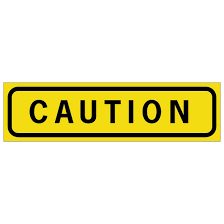
XIV. Administration to Specific Populations
Elderly individuals may need to take doses of Becozinc G because their kidney function tends to decrease with age. It's important to monitor them and adjust the dosage based on their specific needs and any other health conditions they may have. For women and nursing mothers, it's crucial to ensure the safety and effectiveness of zinc and B vitamins. While these nutrients are essential, excessive amounts can be harmful during pregnancy and lactation. Healthcare professionals will prescribe doses that support the well-being of both the mother and the baby without surpassing safe limits. When it comes to children, it's important to consider their requirements and physical development when determining the dosage of Becozinc G. Careful calculations must be made to prevent deficiencies or excessive intake in pediatric patients.
XV. Overdosage of Becozinc-G
Signs of an overdose: If someone takes too much zinc, they may experience gastrointestinal discomfort, feel tired, and have an imbalance in their electrolytes. If someone regularly takes much zinc over a long period of time it can lead to more serious problems like a lack of copper and issues with the nervous system. What to do in case of an overdose: If someone has taken too much Becozinc G, the first step is to stop taking it. They should receive care and might need specific antidotes or chelating agents in a hospital.
XVI. Storage and Handling Precautions
To make sure that Becozinc G remains effective, it's important to store it at room temperature and keep it away from moisture and direct sunlight. This will help maintain its potency and prevent it from degrading. To ensure safety be careful when handling the packaging of the product and make sure to use it before the expiration date. It is recommended to dispose of any unused medication properly to avoid accidental ingestion or harm to the environment.




